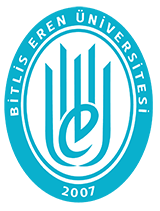The Effect of Pistachio Vera Shell Ash on Concrete Performance
Abstract
Cement production is a major contributor to global energy consumption and CO2 emissions, prompting the need for sustainable alternatives in the construction industry. This study investigates the potential of Pistachio Vera Shell Ash (PSA), an agricultural waste, as a partial replacement for cement in concrete. PSA was substituted at 3%, 5%, and 10% by weight of CEM I 42.5 R cement in concrete mixtures, and its effects on the physical, mechanical, and microstructural properties of concrete were evaluated. The results indicate that as the PSA substitution rate increased, the water demand of the concrete mixtures rose, leading to reduced workability. At the 3% replacement level, the compressive strength of the concrete remained comparable to that of plain concrete and only a 10% reduction was observed at 28 days. However, higher substitution rates (5% and 10%) resulted in significant strength losses, with reductions of 21% and 42.7%, respectively. Despite its non-pozzolanic nature, PSA demonstrated potential as a supplementary cementitious material (SCM), particularly in regions with abundant pistachio production. The study concludes that PSA can contribute to sustainable construction practices by reducing the environmental impact of concrete production and promoting the recycling of agricultural waste. Further research is recommended to optimize PSA substitution levels and enhance its compatibility with concrete matrices.
Collections

DSpace@BEU by Bitlis Eren University Institutional Repository is licensed under a Creative Commons Attribution-NonCommercial-NoDerivs 4.0 Unported License..













